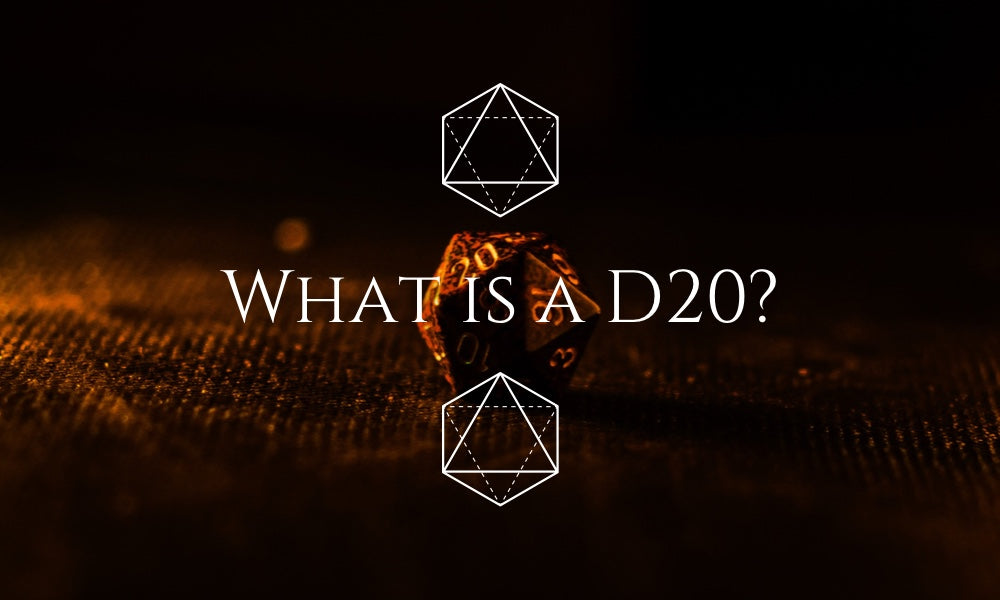It's not just a plain old die, it's a magic portal to adventure! The d20, a 20-sided die, is the cornerstone of the tabletop role-playing game world, most notably Dungeons & Dragons (D&D). It's a polyhedron with 20 flat faces, each showing a number from 1 to 20, waiting to bring your character's fate to life.
Average Roll and Percentages
The average roll of a d20 is 10.5, but that's just the average. Every roll of a d20 is an opportunity for the unexpected to happen. Each number has a 5% chance of appearing on any given roll, making every roll of the d20 an exciting journey full of adventure and possibility.
When to use a D20
In D&D, the d20 is your guide to determine the outcome of the most epic battles and daring escapades. When your character wants to perform a task, such as sneaking past a guard, you roll the d20 and add any relevant bonuses or penalties based on your character's abilities. The Dungeon Master sets the target number, and it's up to the d20 to decide your fate.
Attacking an enemy:
When a player wants their character to attack an enemy, they roll a d20 and add their attack bonus. The Dungeon Master sets the target number based on the enemy's armour class, and if the player's roll plus their bonus is equal to or higher than the target number, the attack is a hit.
Saving throws:
When a player's character is subjected to a harmful spell or effect, they can attempt to resist it by making a saving throw. They roll a d20 and add their relevant ability score modifier to see if their roll is high enough to avoid the effect.
Skill checks:
When a player's character wants to perform a task that requires a specific skill, such as picking a lock or climbing a wall, they roll a d20 and add their relevant skill bonus. The Dungeon Master sets the target number, and if the player's roll plus their bonus is equal to or higher than the target number, the task is successful.
Initiative:
At the start of combat, each player rolls a d20 to determine the order in which characters take their turns. The player with the highest roll goes first, followed by the other players or NPCs in descending order.
Exploring:
When a player's character is exploring a new area, they might encounter a trap or secret door. To determine whether they find it, they roll a d20 and add their Wisdom (Perception) modifier. The Dungeon Master sets the target number, and if the player's roll plus their bonus is equal to or higher than the target number, they find the trap or secret door.
That covers some of the main scenario you'll be using a d20 in your games. That said, there are plenty more which we haven't covered here and there is always the possibility of on-the-fly or home-brewed rolls which aren't covered by any D&D rules.
Let's dive into some examples of those scenarios to make this a little more concrete.
Examples D20 usages
Stealthing Past a Guard:
Player: "I want to attempt to sneak past the guard."
Dungeon Master: "Roll a d20 and add your Stealth modifier."
Player: rolls the d20 and gets a 19 "It's a 19! Plus my Stealth of 5, that's 24."
Dungeon Master: "Okay, awesome. You slip past the guard undetected, like a shadow in the night."
Haggling with a Merchant:
Player: "I want to haggle with the merchant and see if I can get a better price on this magical sword."
Dungeon Master: "Roll a d20 and add your Charisma (Persuasion) modifier."
Player: rolls the d20 and gets a 12 "Not my best roll, but with my mod of 3 it's a 15."
Dungeon Master: "Okay, the merchant is impressed by your bargaining skills and agrees to lower the price by 10%."
Trying to Intimidate an NPC:
Player: "I want my fighter to intimidate the barkeep into giving us information about the dragon's lair."
Dungeon Master: "Roll a d20 and add your Strength (Intimidation) modifier."
Player: rolls the d20 and gets a 19 "This should do the trick."
Dungeon Master: "With your Strength modifier of +4, your total is 23. The barkeep is intimidated and spills the beans, revealing the location of the dragon's lair."
The d20 is not just a simple die, it's a key to unlocking the door of imagination and adventure in the world of tabletop role-playing games. It has a unique geometry, is used to determine the outcome of all sorts of thrilling events.
So grab your d20 and let the games begin!

